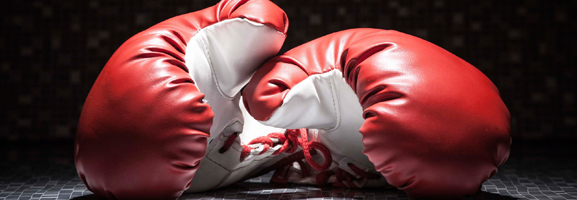A Guide to Olympic Boxing

Boxing is currently in full swing at the Rio Olympics 2016. Below Newitts takes a look at the changes boxing has made over the last 4 years since London 2012, and provides a short guide to boxing at this year's Olympics.
Boxing as an Olympic Sport
Boxing has been an Olympic sport since 1904. In 1941, the International Boxing Association (AIBA) took responsibility for the sport as a world governing body. There are three home nations within the UK which are England Boxing, Welsh Boxing and Boxing Scotland. The British Amateur Boxing Association is responsible for the preparation of elite athletes for the Olympic Games.
What is Olympic-style boxing?
Olympic boxing is much faster than professional boxing and scoring is based around technique. As such, Olympic boxing requires a great deal of technical skill and extremely high levels of fitness. In order to win a medal, there can be no room for anger and aggression in the Olympic boxing ring, instead, gold-medal winning fighters need to remain calm and focused when they step into the ring.
The changes to Olympic Boxing
Boxing has seen some of the most changes during the past 4 years since the London Olympics 2012. Now in Rio 2016, boxers will be seen fighting without head guards and using the '10-point must' scoring system from professional boxing. The Rio 2016 Olympics is also open to professional boxers for the first time, making Olympic boxing harder to distinguish from the professional sport, although matches remain significantly shorter.
What do fans think of the changes?
Many boxing fans view the changes to boxing at this year's Rio Olympics as a positive thing as it allows for the biggest names in the sport to take part and will also put an end to mismatches - where older, more experienced boxers are pitted against much younger, amateur boxers. It also makes it easier for boxers such as Nicola Adams to return to the Olympics and defend their medals.
Team GB
This Olympics 2016, Team GB has sent 12 fighters to Rio - the largest team of boxers in 32 years. Their target is try and achieve between three and five medals and Great Britain waits in anticipation to see if they can achieve this goal. In addition to defending champion Nicola Adams, Joe Joyce is one to watch at super heavyweight, whilst Josh Kelly is a popular contender in welterweight and Pat McCormack in light welterweight.
Other Boxers to watch
If you're a keen boxing fan, some of the other key fighters in this year's Olympics include bantamweight Shakur Stevens and middleweight Claressa Shields who are hotly tipped to finally win some boxing medals for Team USA. Ireland's Paddy Barners is also one of the favourites this year - he already has two Olympic Bronze medals under his belt and is a hot favourite to win gold at light flyweight.
How do Olympic boxing matches work?
The men's matches consist of three, three-minute rounds while the women's boxing consists of four two-minute rounds. The 10-point must system of scoring used in professional boxing is used to score, awarding the winner of each round 10 points based on criteria to include effective aggression, cleanly landed punches and defensive skill. The loser of each round receives 9 points unless they are thoroughly dominated or knocked down, in which case they will only receive 8. The judges hand in their scorecards after each round, so there will no longer be a 'live' score during the fight.
How have the changes affecting the fight?
Because the amateur Olympic matches are much shorter than professional boxing matches, the pace of action can often be more frantic. Professional fighters are more likely to tire as they will be fighting at a faster pace than usual.
Boxing matches take place every day of the Olympics, with most of the coverage on BBC red button as well as BBC1 and BBC4. Semi-finals start TODAY and Finals begin on 14th August.
